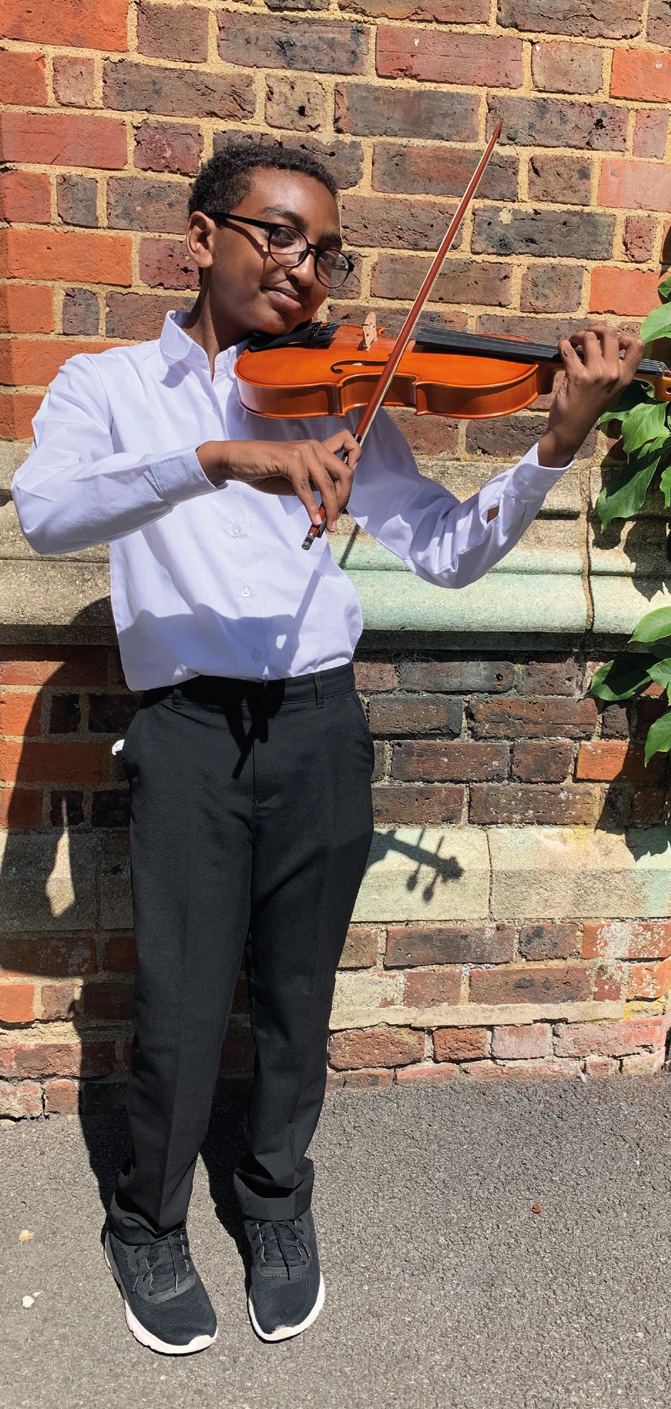
Achievement and motivation share a symbiotic relationship, and their connection to enjoyment and wellbeing is well documented in educational psychology. Studies have demonstrated that this connection is particularly evident when young people learn a musical instrument because it provides an indication of progress. It is also accepted that the environment in which students learn has a significant impact on their level of engagement.
This is the driving force behind the Music in Secondary Schools Trust (MiSST). By working with schools to build a culture in which every child learns an instrument, irrespective of family income and home environment, MiSST aims to create a level playing field in which everyone can engage in a rich music education and reap its benefits.
Early journey

Ahmed, a Year 8 student at one of MiSST's partner schools in Middlesbrough, acknowledges the correlation between achievement and motivation. He recalls that learning the violin ‘was actually very difficult at first. Then, as I got better, we went onto harder pieces which I found fun, and I realised that I was good!'.
Despite only seeing a violin for the first time in Year 7, Ahmed is already preparing for Grade 1. He attended MiSST's residential course at Radley College in July 2022, and quickly impressed staff and peers with his resilience, dedication and infectious enjoyment. In fact, at the end of the residential he was presented the Spirit of MiSST award, voted for by his fellow students. Ahmed's experience, along with that of countless other students, is evidence that the social benefits of participation in music activities result not only from contact time, but from the collaboration that occurs in shared musical spaces.
Ahmed and his peers were asked a series of questions at the start and end of the residential, designed to measure the impact of this shared experience in areas such as engagement, relationships and confidence. Comparisons demonstrated an improvement in all areas after the three days, but especially in the areas of skill development (more than 7 per cent increase) and relationships (more than 8 per cent increase). One student summed up the social benefits of the residential: ‘it made me feel important and like I belonged’.
Image: © Courtesy MiSST. Ahmed, awarded the Spirit of MiSST
Ahmed is already aware of the intrinsic link between learning a musical instrument and developing other skills, saying that ‘learning violin gave me a hobby and also helped me to learn to manage my time more… it feels like something I want to do’.
Moving on
Angel is a Year 13 student studying for A Levels in History, Politics and Music at one of MiSST's partner schools in London. She started learning the violin through MiSST in Year 7 and distinctly remembers how special it felt. For Angel, those early experiences have shaped her formative years: ‘I remember we learned an easy arrangement of Vivaldi's Spring. I recognised the piece, and instantly knew that I wanted to know it better than everyone else. That feeling you get when you play a piece of music that you were only listening to a year earlier has stayed with me. It is my favourite thing ever, and has kept me motivated.’
Angel is now preparing for her Grade 8 violin and has an offer from Manchester University to read History. Even though she won't be studying music for her degree, she is already looking forward to joining the music societies and orchestras. In fact, one of the reasons Angel wanted to apply toManchester was because of its reputation for music provision.
‘Violin has helped me so much with my time management’, she says. ‘Having a hobby that I have to decide, every single day, to put time aside for has made me so much more productive in other areas. If I'm already practising the violin, then I'm already in the mindset to work.’
Wider impact
MiSST's intent is that the impact of learning an instrument will be shared by whole school communities. While this undoubtedly creates better learners and improves academic performance, it is crucial to underline the importance of studying music for its own sake. That, in itself, gifts young people the positive emotions associated with musical engagement, and a gratifying sense of wellbeing and finding meaning in their lives.








